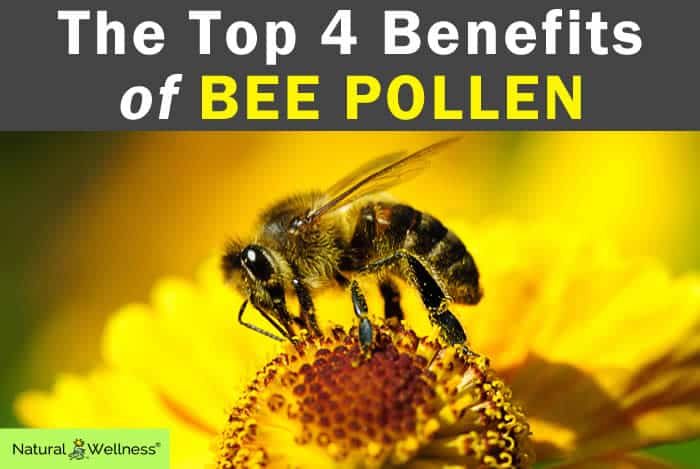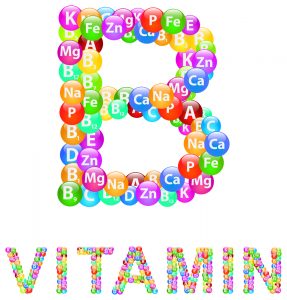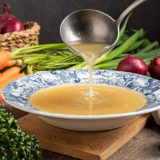

Is bee pollen a superfood? That depends on how we define “superfood.”
Bee pollen is extremely nutritious – containing high levels of proteins, amino acids, lipids, minerals, carbohydrates, vitamins and other compounds, such as lactic acid bacteria (beneficial bacteria for your gut). It’s pretty “super” in that regard.
Unfortunately, studies on bee pollen’s magical healing properties are in short supply. As far as we know, it cannot guide us to the fountain of youth or soothe all wounds.
Which is not to say there isn’t promise in this powdery little treat…
1. Bee Pollen Is Bursting With B Vitamins

Bee pollen may be a natural energy booster. Whether playing sports or just trying to make it through the early afternoon slump, you can add a dusting of bee pollen to a smoothie or snack to put some pep back in your step.
According to nutritional therapist Zoe Stirling, “Bee pollen contains B vitamins, as well as being a source of natural carbohydrates which are important for energy production. In fact, bee pollen is thought to help with sports performance, strength and endurance due to its diverse nutrient profile.”
2. Bee Pollen Is Packed With Protein
Because of its nutrition profile and high level of protein, bee pollen was examined in one 2014 study as a supplement for malnourished individuals. The results were promising.
Researchers concluded that free bee pollen “exerts highly beneficial biological activities for the recovery of muscle protein and energy metabolism in old rats exposed to severe food restriction,” and suggested that it “could be useful in prevention of or recovery from malnutrition” in humans.
Bee pollen is widely used in traditional Chinese medicine and is officially recognized as medicine by the German Federal Board of Health.
“Bee pollen is made up of anything between 10-40 percent protein and contains all essential amino acids in a form that is easily utilized by the body,” explains Ms. Stirling. “In fact, bee pollen contains more amino acids per equal measure of weight compared to both beef and eggs! Protein is required for muscle growth, hormone and antibody production as well as maintenance of bones and is therefore incredibly important for a number of body functions.”
3. Bee Pollen Is an Antioxidant & an Anti-Inflammatory
In addition to its rich blend of proteins, vitamins and amino acids, bee pollen contains flavonoids and phenolic compounds, which have antioxidant effects. One study from 2010 suggests that these flavonoids deliver potent anti-inflammatory activity via the inhibition of nitric oxide production (which causes inflammation).
4. Bee Pollen May Make You Look Younger
“One of the amino acids found in bee pollen is called proline, a building block for collagen synthesis that can boost skin firmness,” Stirling told Get The Gloss. “In addition, the antioxidant properties from bee pollen may also help in keeping skin supple and youthful. Bee pollen can also be used as a scrub to be used externally on the skin that can help with blemishes and acne.”
Mind Your Allergies
There is still a lot to learn about bee pollen, but the studies so far are promising. You can try it for yourself in several forms, such as supplements.
A Word of Caution
A word of caution before we conclude. Because bee pollen is harvested by bees, those with bee allergies should steer clear. Depending on the severity of your allergy or the dosage taken, reactions may include:
- shortness of breath
- hives
- swelling
- anaphylaxis
Stirling recommends that pregnant and breastfeeding mothers should refrain as well, “as there’s not enough evidence to show whether it has harmful effects during this time.”




